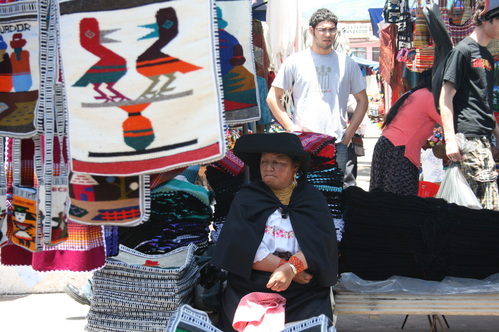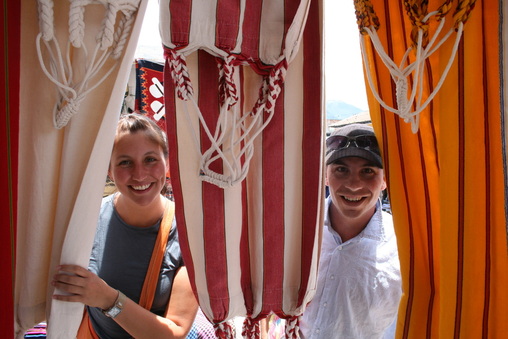It's often common knowledge that most developing countries are accustomed to bartering on the initial suggested price. This is one of the main reasons most street vendors don't advertise prices with price tags, as the stall next to them would then surely try to undercut them. I'll admit, coming from a country where this isn't common practice, it can be quite the rush seeing how good a deal you can get on an already well priced item. It almost becomes addictive to the point of being a little ludicrous. You'll often be taught, by other travellers or through travel guide books, the techniques for scoring the best deal in the country your visiting. Sometimes this may be by simply turning your back on the vendor, and magically the price is half what was initially quoted, other times the 2 for 1 deal seems to work, but more often than not, it's persistence.
One thing that seems to often get lost in that exchange is the true value of these items to the vendors selling them. Many travellers start challenging themselves, even on what was already a good deal, simply for the sake of bartering.
What seemed like a great deal to me, may have been a desperate attempt just to put food on the table that night. That being said, this is definitely not always the case, and some handicraft vendors are some of the wealthiest people in their town.
My only suggestion is to try and read the look the vendor is giving you, and listen to the words they are saying. If they try to tell you "this is their livelihood" or look at you with desperation when you try to undercut them further, there's a good chance you've reached what should be the lowest price. Gauge how much the item is worth to you, and always remember, it's probably considerably cheaper that you're buying it from the source.. and now are bringing back not only a souvenir, but a memory and experience, in addition to contributing to the local economy of your destination! Everyone's a winner, and you can leave happy knowing that you've done the right thing!


 RSS Feed
RSS Feed

